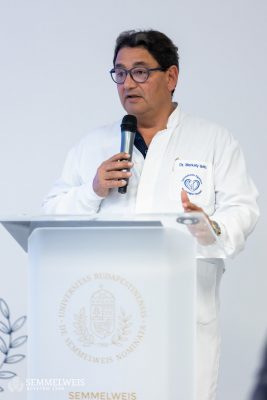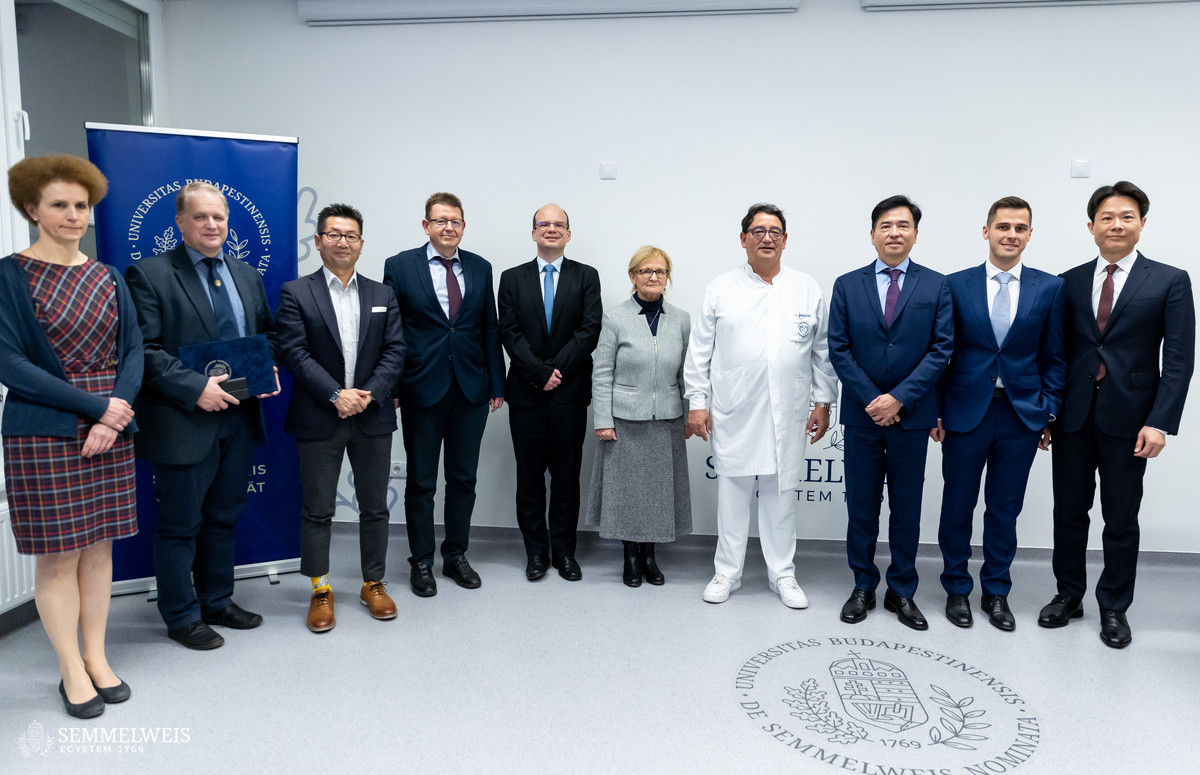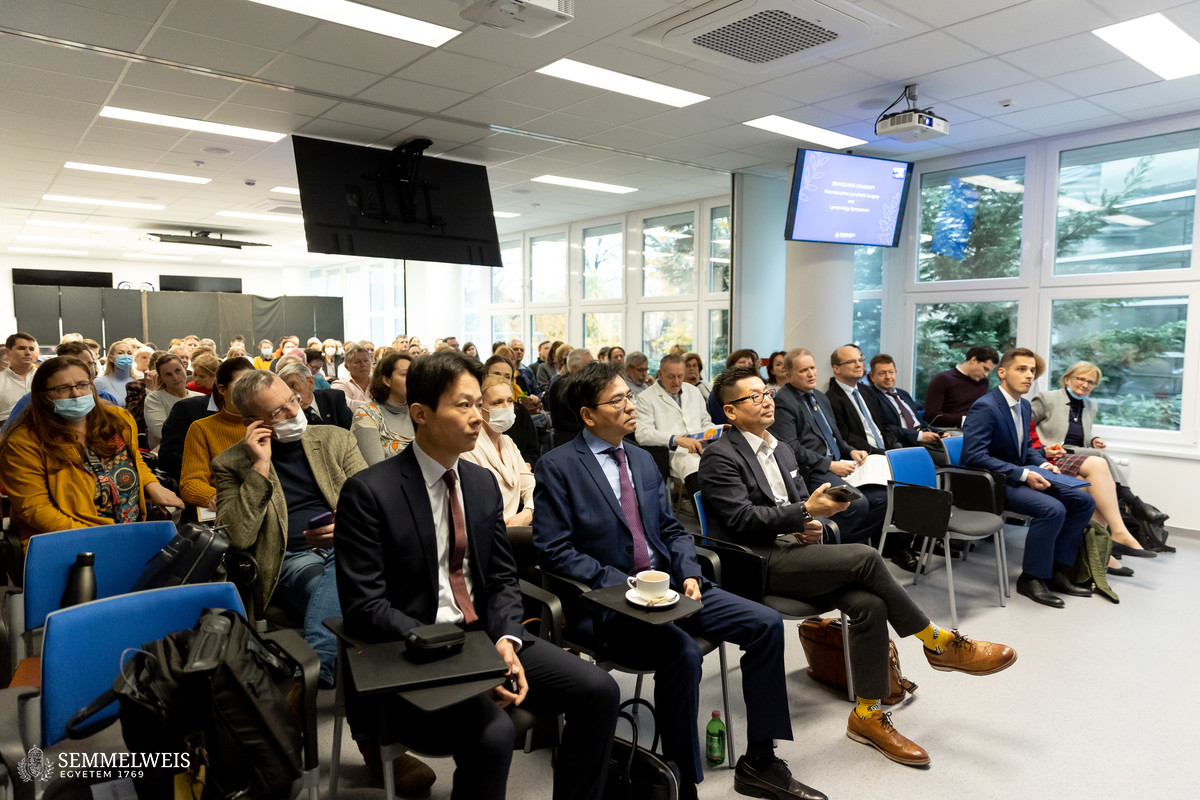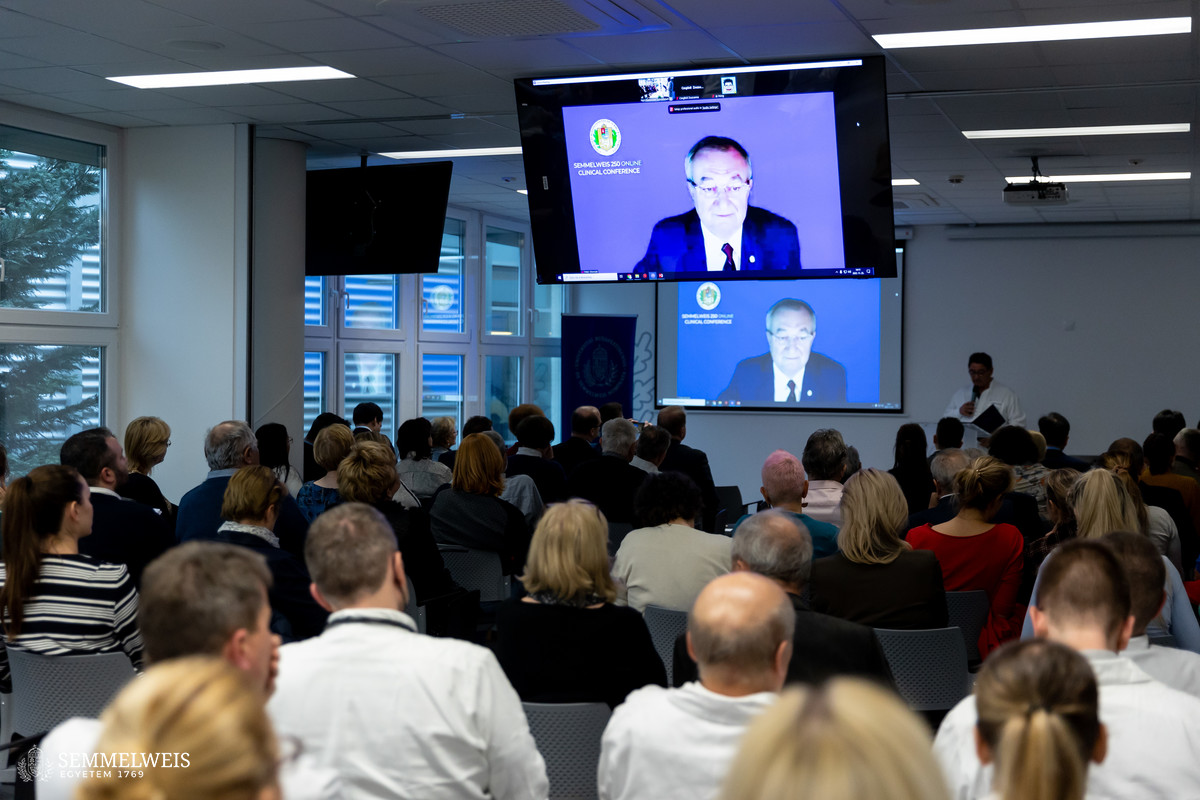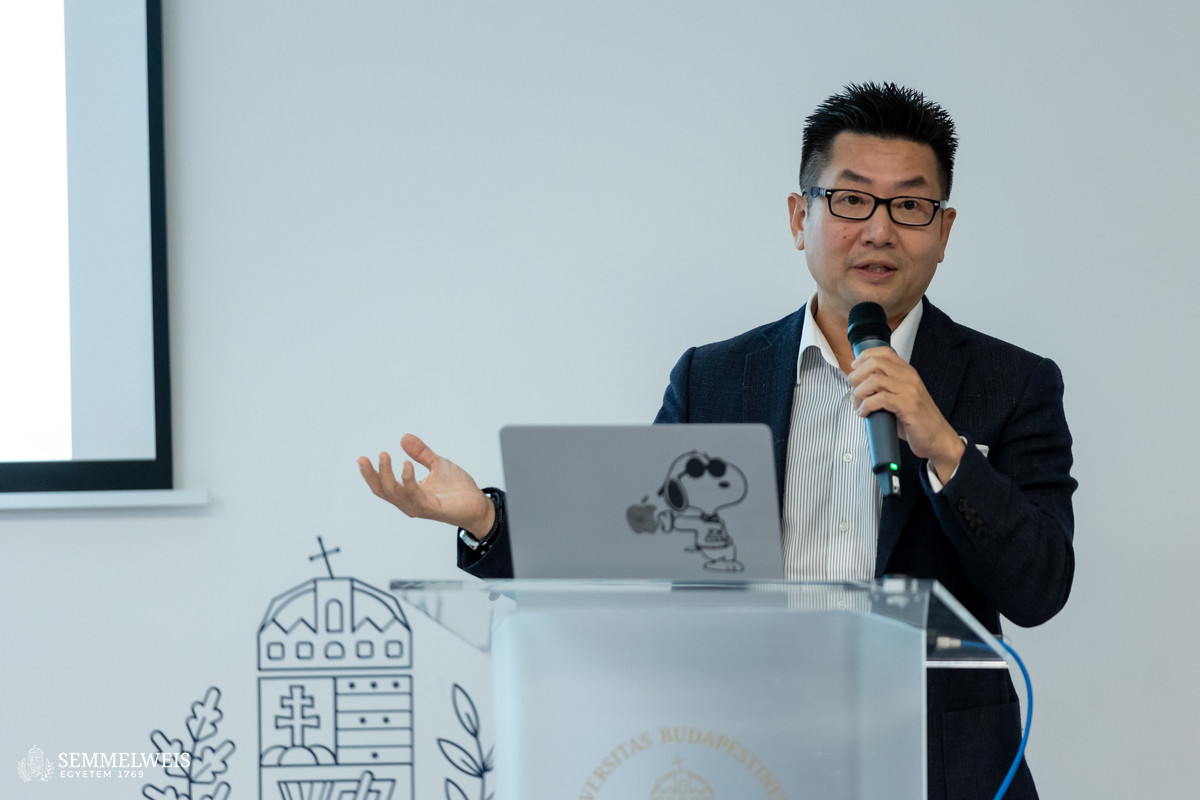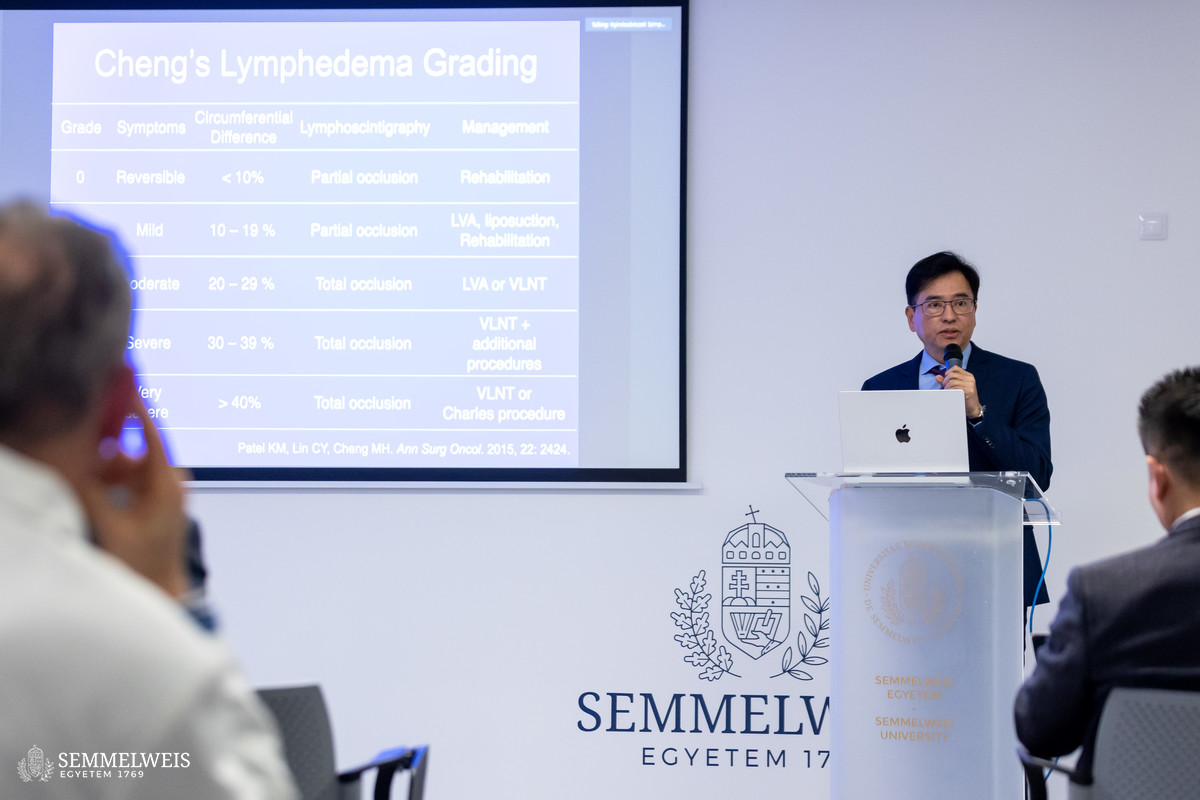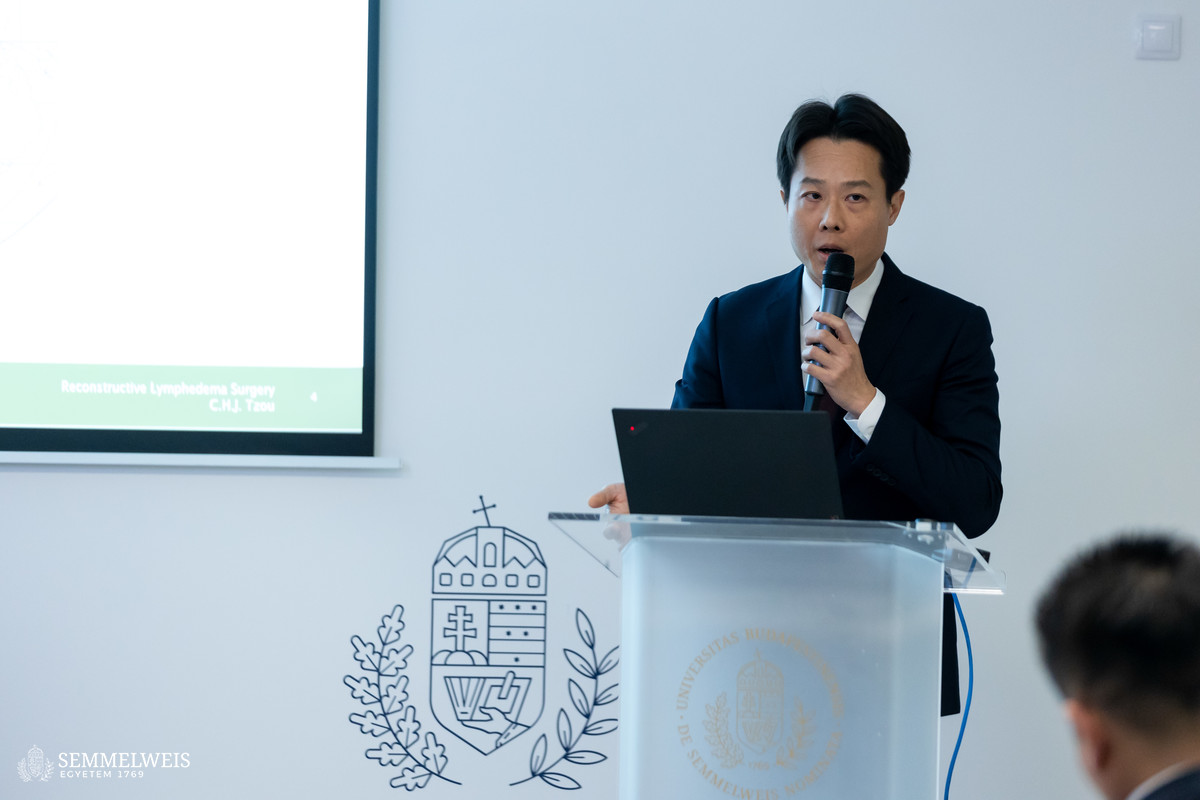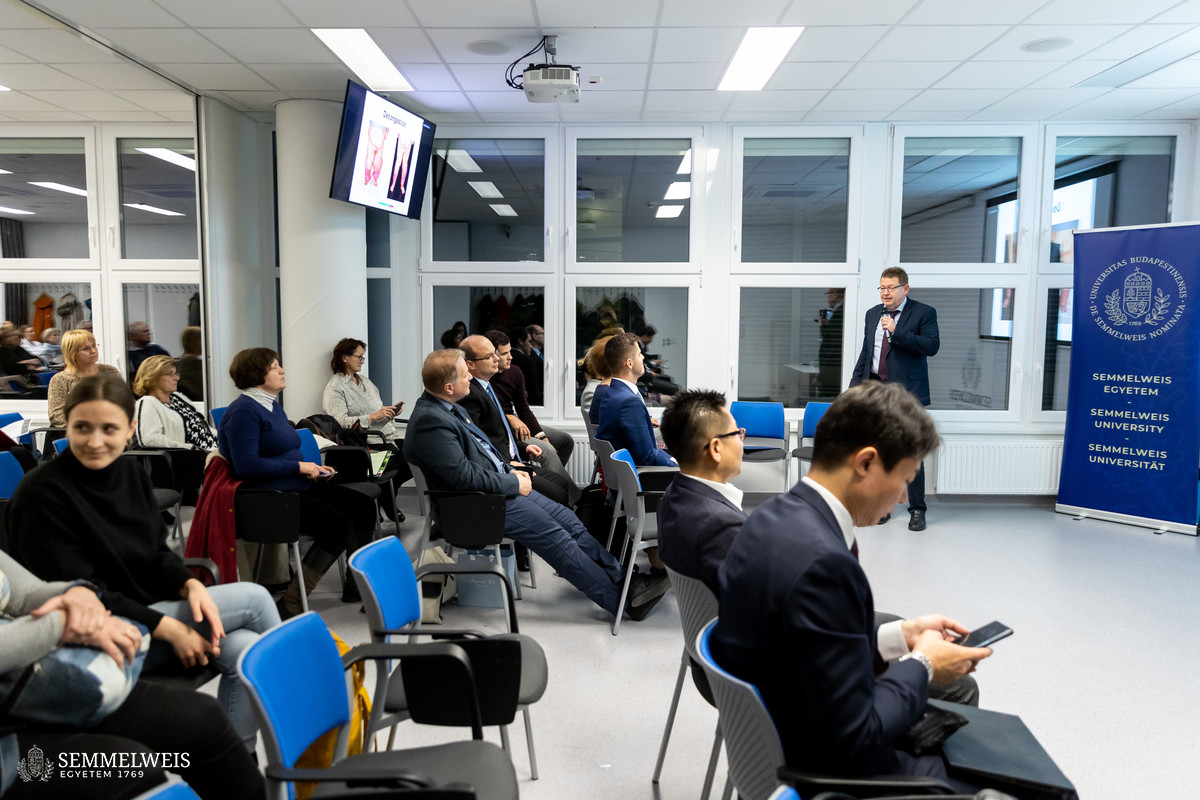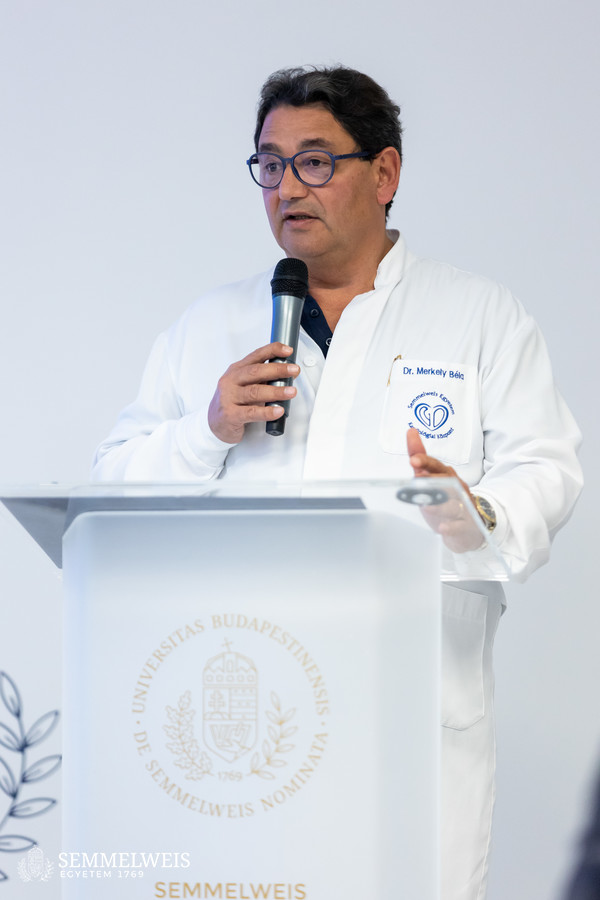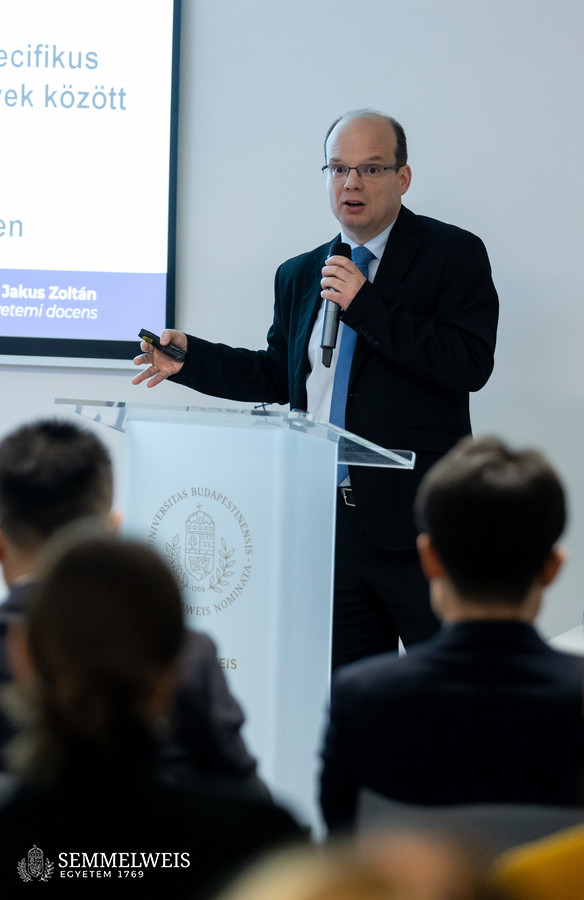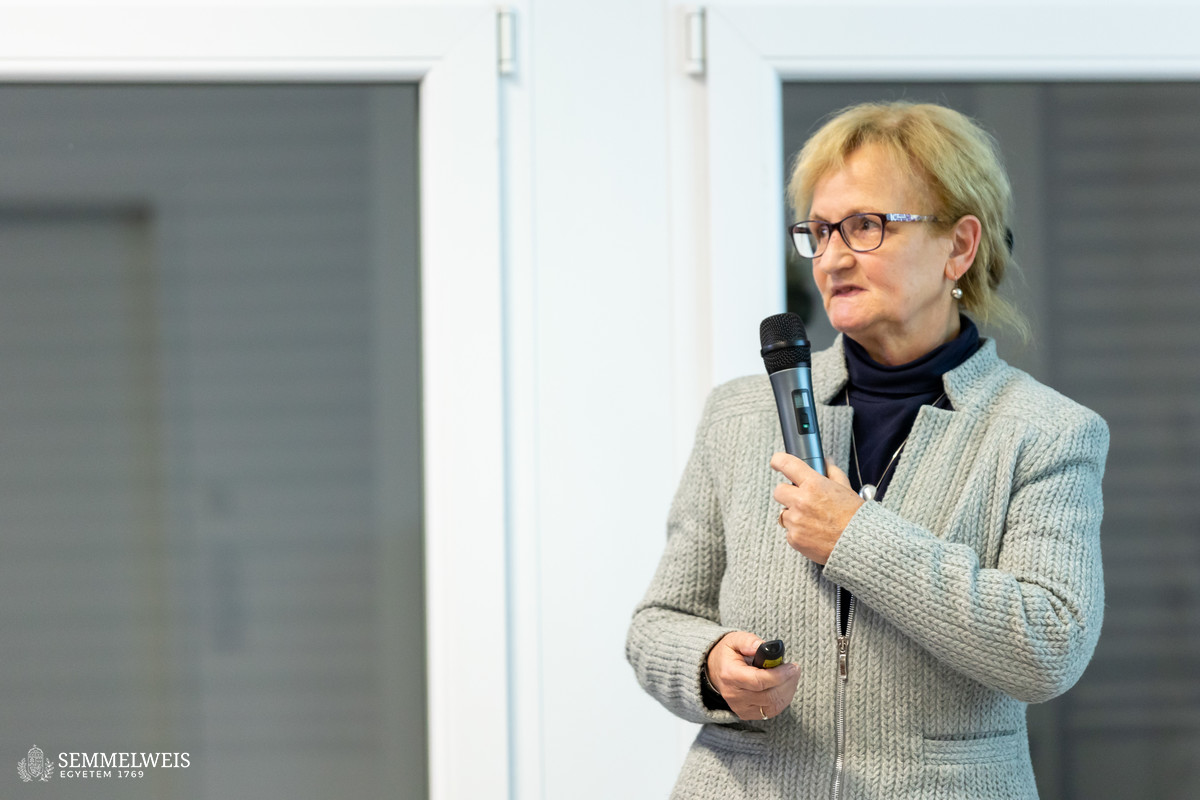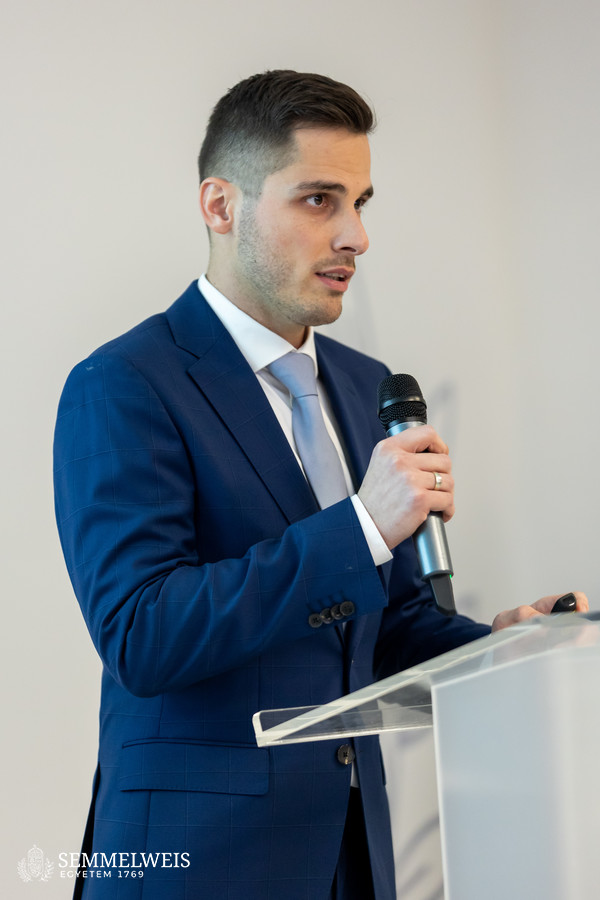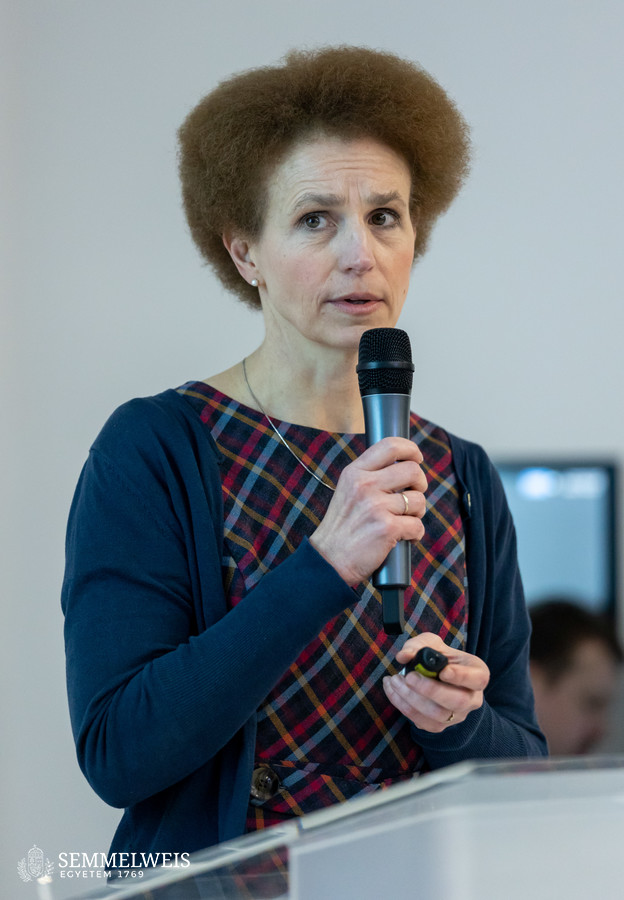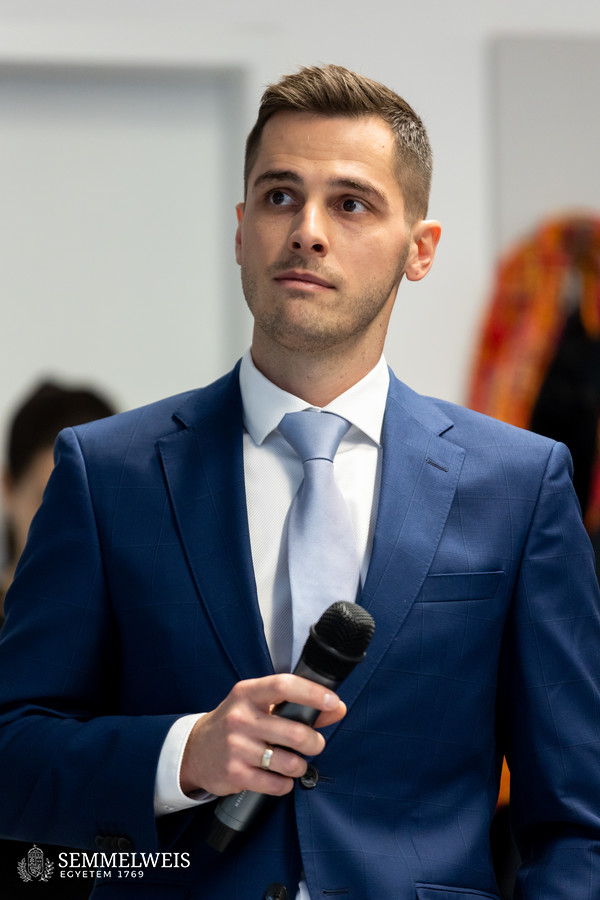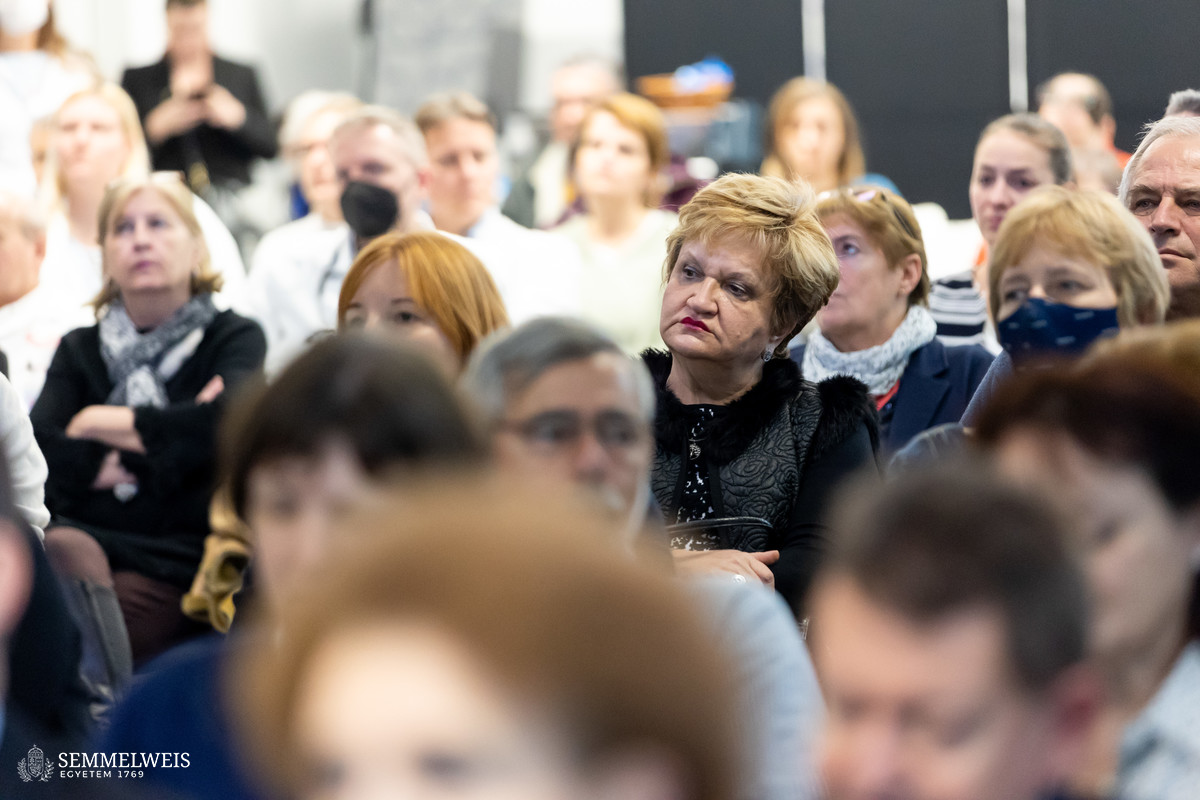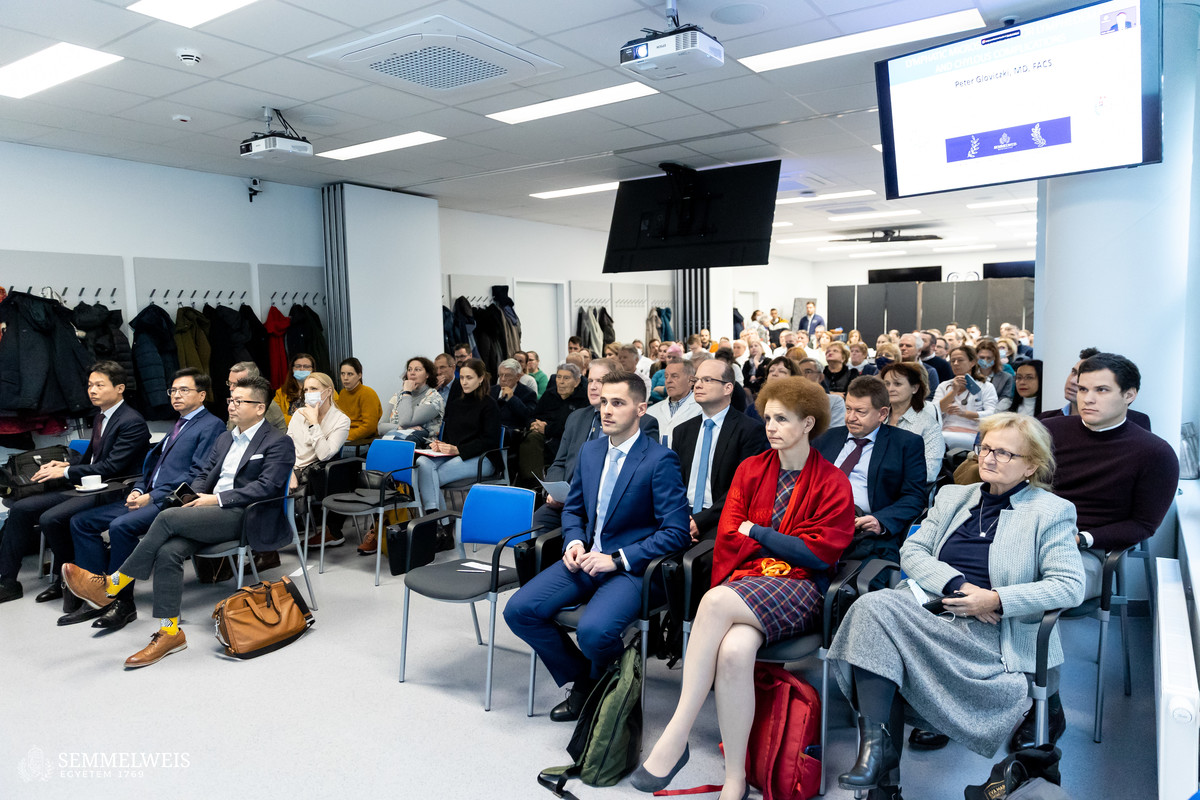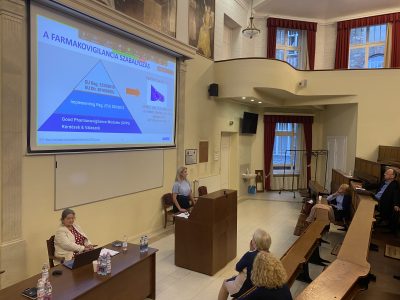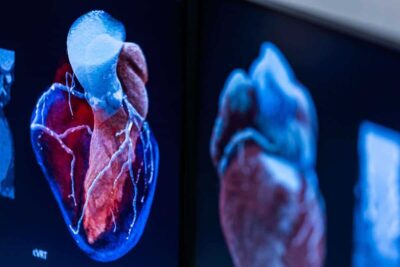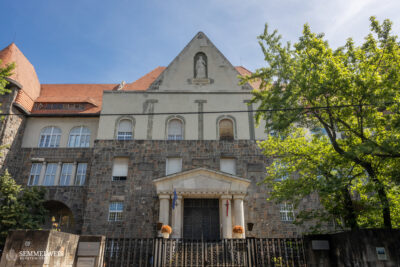Following the opening speech of Dr. Béla Merkely, Rector of Semmelweis University, Dr. Péter Gloviczki, internationally renowned vascular surgeon, Professor Emeritus of the Mayo Clinic, Semmelweis Budapest Award winner, held a lecture via video conference.
Dr. Joon Pio Hong, Professor of Plastic and Reconstructive Surgery at the University of Ulsan and Asan Medical Center in South Korea; Dr. Ming-Huei Cheng, a leading specialist in microsurgery at Linkou Chang Gung Memorial Hospital in Taiwan; and Dr. Chieh-Han John Tzou, Professor of Plastic Surgery at Göttlicher Heiland Hospital in Vienna, jointly presented the most advanced lymphatic reconstruction techniques available today. Each of these distinguished surgeons has made significant, innovative contributions to the field of reconstructive surgery. Their combined expertise reflects the forefront of modern lymphatic procedures, advancing patient care worldwide.
In the second, Hungarian-language session, Dr. Marianna Rédling, clinical chief physician at the South-Pest Hospital Centre, Dr. Balázs Mohos, clinical specialist and fellow of the Divine Saviour Hospital in Vienna, Dr. Erzsébet Boros, head of department at the National Institute of Medical Rehabilitation, Dr. Győző Szolnoky, Head of the Department of Dermatology and Allergology at the University of Szeged, and Dr. Zoltán Jakus, Associate Professor at the Department of Physiology, Semmelweis University, spoke about their clinical achievements and research in Hungary.
Guests attending the multidisciplinary congress were given an international insight into the latest therapeutic options. The presentations covered the whole spectrum of lymphedema treatment, from conservative and surgical solutions to imaging and basic research.
In Hungary, 40,000 people suffer from lymphoedema. The disease occurs after the treatment of every sixth solid tumour. According to various studies, the prevalence of lymphoedema is between 1.3 and 18.3 per 1,000 people. However, if the “gold standard treatment”, complex physical therapy is ineffective, the patient’s life quality is significantly reduced as the disease progresses.
Surgical treatment consists of both reductive surgery and physiological reconstructive lymphatic surgery to restore lymphatic drainage. Successful physiological reconstructive surgery requires appropriate pre- and post-operative conservative care, accurate patient selection, optimal donor site and functional lymphatic vessel choice.
Dr. Balázs Mohos, specialist of the Heart and Vascular Center at Városmajor said that interprofessional cooperation in the field of lymphology and lymphosurgery is the key to provide the best possible therapy for patients, thus improving their quality of life. The lymphosurgical techniques presented at the symposium could offer another chance for the recovery of Hungarian patients suffering from lymphedema. The initiator of the symposium stressed at the event that the next Symposium on Reconstructive Lymphatic Surgery and Lymphology is planned to be held on 29 November 2023.
Róbert Tasnádi
Translation: Rita Kónya
Photo: Attila Kovács – Semmelweis University
